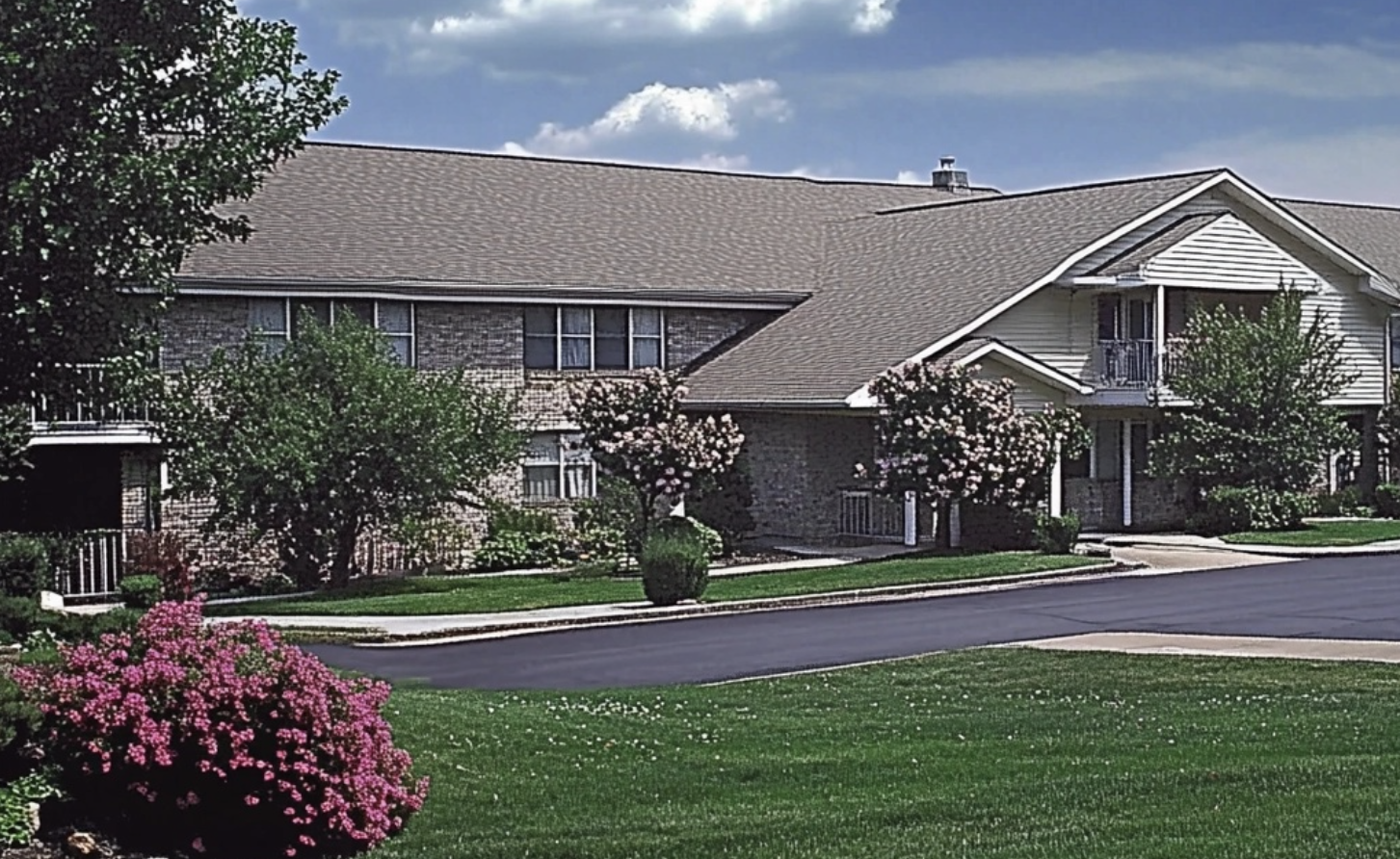Did you know that over 2.7 million Illinois residents are aged 60 or older, and navigating help for seniors in Illinois can feel like solving a complex puzzle?
We understand the challenge families face when supporting aging loved ones. Whether you’re searching for low income assistance for seniors, exploring financial help for seniors on Social Security, or investigating senior care Illinois options, the process can be overwhelming. Unfortunately, many families don’t know where to start when researching Illinois Medicaid eligibility for seniors or what financial help for seniors in Illinois is available.
Throughout this guide, we’ll walk you through the essential programs, application processes, and resources specifically designed for Illinois seniors. From state-funded services to caregiver support, we’ve gathered everything you need to make informed decisions about your loved one’s care. Let’s simplify this journey together!
Understanding Senior Needs in Illinois
Families across Illinois face the challenge of recognizing exactly when their aging loved ones need extra support. Before exploring help for seniors in Illinois, it’s essential to understand what challenges seniors commonly experience and how to identify when assistance becomes necessary.
Common challenges faced by aging adults
Aging brings significant changes that can impact daily functioning. In Illinois, seniors frequently struggle with physical limitations that affect their mobility and independence. Many older adults develop health conditions requiring regular medical appointments or specialized care. Furthermore, seniors with long-term mobility disabilities experience increasingly complex challenges as they age.
Physical access and transferring difficulties represent major hurdles for aging adults. Something as simple as moving from a bed to a chair or walking to the bathroom can become impossible without assistance. Additionally, seniors often face challenges with essential daily tasks like meal preparation, personal hygiene, and medication management.
The specific needs of Illinois seniors have become more complex in recent years. The state has seen an 82% increase in drug deaths among adults 65 and older between 2017-2019 and 2020-2022. Illinois also faces challenges with a high prevalence of mental distress among seniors and limited access to dedicated healthcare providers.
When to seek outside help
Determining the right time to look for senior care Illinois options involves careful observation and honest assessment. Generally, assistance becomes necessary when your loved one struggles with Activities of Daily Living (ADLs) such as dressing, bathing, toileting, walking, or eating.
Outside help should be considered when:
- Your loved one’s care needs exceed what family members can safely provide
- There’s a progressive decline in their ability to manage household tasks
- Safety concerns arise due to cognitive changes or physical limitations
- The caregiver experiences burnout or declining personal health
Most seniors strongly prefer to remain independent in their homes as long as possible and may hesitate to admit when they need help. Consequently, it often falls to family members to recognize when financial help for seniors in Illinois and personal support services become necessary.
Signs your loved one may need support
Several observable indicators suggest your aging parent or relative needs assistance. Changes in their home environment offer important clues – look for uncleaned living spaces, spoiled food in the refrigerator, or unpaid bills. These signs often point to cognitive decline or physical limitations that make daily tasks difficult.
Significant weight loss may indicate they’re skipping meals or unable to prepare nutritious food. Poor personal hygiene, including unwashed clothing or infrequent bathing, typically signals inability to manage self-care. If you notice your loved one holding onto furniture while walking or discover unexplained bruises, these indicate fall risks that require immediate attention.
Memory issues represent another critical area. If your parent frequently misses appointments, forgets to take medication, or shows changes in personality or decision-making abilities, these may signal serious cognitive conditions requiring medical evaluation.
Recognizing these signs early helps families access appropriate resources, including low income assistance for seniors and Illinois Medicaid eligibility for seniors programs, before crises occur. The Illinois Department on Aging offers comprehensive assessments that evaluate factors affecting quality of life and ability to live independently, making it an excellent starting point for families noticing these warning signs.
State Programs That Offer Help
Illinois offers several valuable programs designed to help aging adults maintain independence and dignity. These state-funded initiatives provide crucial help for seniors in Illinois who wish to age in place rather than move to institutional settings.
State Programs That Offer Help
Community Care Program (CCP)
The Community Care Program stands as a cornerstone of senior care Illinois efforts, serving as an alternative to nursing home placement. Created specifically for older adults who cannot live independently, CCP provides comprehensive in-home and community-based services to qualifying seniors.
To qualify for CCP, you must:
- Be at least 60 years old
- Be an Illinois resident
- Meet asset requirements (less than $17,500 in countable resources)
- Demonstrate need for long-term care services
- Apply for Medicaid (though non-Medicaid eligible persons can also receive services)
CCP offers several vital services:
- In-home service (housekeeping, personal care, meal preparation)
- Adult day service with transportation
- Emergency home response services
- Comprehensive care coordination
- Automated medication dispenser service
For seniors with limited income, CCP provides services at no cost if your income falls below the federal poverty level. Otherwise, fees operate on a sliding scale based on your ability to pay, though still below market rates.
Area Agencies on Aging
Illinois divides its senior services into 13 Planning and Service Areas (PSAs), each managed by an Area Agency on Aging (AAA). These agencies serve as the primary coordinators for senior services throughout the state.
The AAA network includes 12 not-for-profit corporations and one government unit (City of Chicago). Rather than providing direct services themselves, AAAs typically contract with local organizations to deliver assistance in your community.
Each AAA receives funding based on a formula considering the number of older citizens, minorities, those living in poverty, rural residents, and seniors living alone in their region. This ensures resources target areas with the greatest need.
Core services from AAAs include:
- Caregiver supports
- Elder rights protection (abuse prevention and ombudsman programs)
- Health and wellness initiatives
- Nutrition programs
- Supportive services (case management, homemaker services, transportation)
Moreover, most AAAs offer additional specialized services such as insurance counseling through SHIP (Senior Health Insurance Program), Veterans Independence Programs, and Senior Medicare Patrol.
Illinois Department on Aging services
The Illinois Department on Aging oversees all state programs for older adults, coordinating with AAAs to ensure service delivery at the local level. I’ve found this agency particularly helpful for families seeking financial help for seniors in Illinois.
One valuable resource is legal assistance. The Department funds AAAs to contract with legal aid representatives who can help with various civil law issues affecting seniors. These services prove especially important for low income assistance for seniors and determining Illinois Medicaid eligibility for seniors.
The Department also provides information on advance directives, including durable powers of attorney for property and healthcare, plus living wills. These documents help protect seniors’ wishes regarding medical care and financial decisions.
For personalized assistance navigating these programs, I recommend contacting the Senior Helpline at (800) 252-8966, where staff can assess needs and provide appropriate referrals to local services.
How to Apply for Senior Assistance
Navigating the application process for senior assistance in Illinois requires knowing exactly where to begin and what to prepare. Many families feel overwhelmed initially, but with the right guidance, securing help for seniors in Illinois becomes manageable.
Where to start the application process
The first step for most senior care Illinois programs is contacting your local Care Coordination Unit (CCU). These community-level organizations coordinate services through the Illinois Department on Aging’s network. To locate your nearest CCU, use the map tool available on the Illinois Department on Aging website.
For the Community Care Program, you’ll need to call your nearest office and speak with an Information and Assistance Specialist. Subsequently, they’ll gather basic information to determine if CCP services might be appropriate for your situation.
Alternatively, if you’re considering nursing facility placement, the Choices for Care Program provides screenings to inform you about long-term care options. These screenings commonly occur in hospitals prior to discharge but can also take place in nursing facilities after admission or in your home.
For Medicaid applications specifically, you have four options:
- Online through the ABE (Application for Benefits Eligibility) portal at https://abe.illinois.gov
- By phone at 1-800-843-6154
- In person at Family Community Resource Centers
- Via paper application (downloadable form)
What documents and assessments are needed
Prior to the home assessment, you’ll need to gather several important documents. These typically include:
- Driver’s License/State ID and Social Security Card
- All insurance cards (Medicare/Medicaid/Private Insurance)
- Current medications or a list from your doctor or pharmacy
- Proof of monthly income (Social Security, pension, etc.)
- Financial records including bank statements, life insurance policies, trusts, IRAs, and annuities
- Property deeds and vehicle titles
During the assessment itself, a case manager will evaluate your health, homecare needs, and physical capabilities. This free service takes approximately two hours and determines if you qualify for assistance programs. The assessment measures your risk for nursing facility placement using the Determination of Need (DON) assessment.
How to get help with the paperwork
Fortunately, numerous resources exist to assist with completing applications for low income assistance for seniors and Illinois Medicaid eligibility for seniors.
The Senior HelpLine (1-800-252-8966) offers guidance throughout the application process. Additionally, trained Information and Assistance Specialists at senior service organizations can confidentially help complete applications for benefits while protecting your personal information.
For financial help for seniors on Social Security and other programs, these specialists can explain eligibility requirements and assist with paperwork that might otherwise seem daunting. They can even provide witnessing and notarizing services for documents like Power of Attorney forms.
Processing times vary by program, with some applications taking up to eight weeks. During this waiting period, you can check your application status online through the respective program’s website.
Financial Help for Seniors in Illinois
Finding financial support for aging loved ones remains a significant concern for many Illinois families. Fortunately, Illinois offers several programs to provide financial help for seniors in Illinois who struggle with limited resources.
Low income assistance for seniors
The Aid to the Aged, Blind or Disabled (AABD) Cash program helps elderly, blind, or disabled individuals with limited resources. To qualify, seniors must be 65 or older, live in Illinois, and have income below program thresholds. The program exempts certain resources up to $2,000 for individuals or $3,000 for couples when determining eligibility.
AABD Cash benefits are calculated based on the difference between your basic expenses (like rent and utilities) and your income. Recipients also receive a MediPlan card for healthcare coverage and may qualify for SNAP benefits.
Illinois Medicaid eligibility for seniors
In 2025, Illinois Medicaid eligibility for seniors requires meeting specific financial criteria. For Nursing Home Medicaid, a single applicant must have:
- Monthly income under $1,304.17
- Assets under $17,500
- Need for nursing home level care
Married couples face different requirements, with a non-applicant spouse potentially entitled to retain up to $135,648 of the couple’s assets as a Community Spouse Resource Allowance. Nonetheless, Illinois offers a spenddown program for seniors whose income exceeds the limits, allowing them to qualify after spending excess income on medical expenses.
Financial help for seniors on Social Security
Social Security recipients might qualify for additional benefits through SSI (Supplemental Security Income). The Social Security Administration’s Benefit Eligibility Screening Tool helps identify potential benefits beyond current Social Security payments.
Essentially, Social Security recipients may receive higher benefits under certain circumstances, such as when a spouse or ex-spouse dies, or when they reach full retirement age.
Non-Medicaid programs and grants
The Benefit Access Program offers transit benefits for eligible seniors with gross annual income under $33,562 for a one-person household or $44,533 for a two-person household. Applications must be submitted online, with processing times up to eight weeks.
Additionally, the Emergency Senior Services (ESS) grant provides short-term assistance for seniors facing unexpected expenses. This program assists those with monthly income no greater than $3,500 for individuals or $4,700 for couples, with emphasis on homelessness prevention.
Various grants also exist for Illinois nonprofits serving senior populations, indirectly benefiting older adults through community programming and services.
Support for Family Caregivers
Caring for aging loved ones often comes with emotional and financial challenges. Fortunately, Illinois offers valuable support for those providing care to seniors.
Can family members get paid to provide care?
Yes—through the Community Care Program (CCP), qualified family members can receive payment for providing in-home care to eligible seniors. Family caregivers typically earn between $13 and $17 per hour, depending on care level and hours worked. At some agencies, this rate reaches $20 per hour. To qualify, you cannot be the care recipient’s legal guardian or manage their finances.
The process starts by contacting your local Department on Aging or a Medicaid-certified home care agency. After confirming your loved one’s eligibility for programs like Medicaid waivers or CCP, you’ll complete necessary training before officially becoming a paid caregiver.
Training and respite services for caregivers
Caregiving requires specific skills that many of us don’t naturally possess. I’ve found several organizations offering free, 24-hour access to training videos and materials, including AARP, the Alzheimer’s Association, Family Caregiver Alliance, and UCLA Health.
Equally important is taking breaks. Respite services provide temporary relief for caregivers, ranging from a few hours to several days. These services can occur in-home or at facilities, giving you time for personal needs or emergencies.
For unexpected situations, the Illinois Respite Coalition offers Emergency Respite funding—up to $500 for caregivers not receiving state or waiver funding. Qualifying circumstances include caregiver illness, hospitalization, funeral attendance, or mental health challenges.
Where to find caregiver support groups
Support groups provide essential emotional connections with others facing similar challenges. The 13 Area Agencies on Aging across Illinois fund programs specifically for family caregivers, including support groups. After assessing your needs through the TCARE tool, they can refer you to appropriate groups.
Additional resources include:
- Alzheimer’s Association’s virtual and in-person support groups
- Illinois Family Caregiver Coalition’s statewide network
- Trinity United Church of Christ’s regular caregiver meetings
- Caregiver Action Network’s volunteer-led groups
Remember, seeking support isn’t a sign of weakness—it’s an essential part of providing quality care while maintaining your own well-being.
Conclusion
Finding the right help for seniors in Illinois certainly requires dedication and patience. Throughout this guide, we’ve explored essential resources designed to support aging loved ones while providing families with practical navigation tools. Most importantly, recognizing when your loved one needs support marks the first crucial step toward accessing appropriate care.
The state of Illinois offers substantial assistance through programs like the Community Care Program, Area Agencies on Aging, and Department on Aging services. These resources provide everything from in-home care to legal guidance, specifically tailored to senior needs. Additionally, financial support options such as AABD Cash, Medicaid programs, and non-Medicaid grants can significantly reduce the financial burden many families face.
Family caregivers should remember they don’t have to shoulder responsibilities alone. Support groups, training resources, and even payment options exist for those providing direct care to loved ones. Similarly, respite services offer vital breaks that help prevent burnout while ensuring continued quality care.
The journey of supporting an aging loved one undoubtedly comes with challenges. However, armed with knowledge about available resources and eligibility requirements, families can make informed decisions that honor their seniors’ dignity and independence. After all, our elderly deserve care that respects their wishes while addressing their changing needs – and Illinois provides numerous pathways to make this possible.
FAQs
Q1. What financial assistance programs are available for low-income seniors in Illinois? Illinois offers several programs for low-income seniors, including the Aid to the Aged, Blind or Disabled (AABD) Cash program, Medicaid, and the Benefit Access Program for transit benefits. Eligibility and benefits vary based on income, assets, and specific needs.
Q2. How can family members get paid for providing care to seniors in Illinois? Through the Community Care Program (CCP), qualified family members can receive payment for providing in-home care to eligible seniors. Caregivers typically earn between $13 and $20 per hour, depending on the level of care and hours worked.
Q3. What are the signs that an elderly person needs assistance? Signs include difficulty with daily tasks, poor personal hygiene, significant weight loss, memory issues, changes in home cleanliness, unpaid bills, and increased fall risks. If you notice these signs, it may be time to seek outside help.
Q4. Where can I find support groups for caregivers in Illinois? Caregiver support groups are available through Area Agencies on Aging, the Alzheimer’s Association, Illinois Family Caregiver Coalition, and various community organizations. These groups offer emotional support and practical advice for caregivers.
Q5. What services does the Illinois Department on Aging provide for seniors? The Illinois Department on Aging offers various services including the Community Care Program, elder rights protection, health and wellness initiatives, nutrition programs, legal assistance, and information on advance directives. They also provide a Senior Helpline for personalized assistance and referrals.












